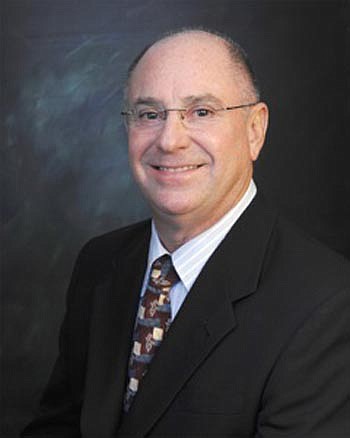
Leadership. You know it when you see it. And everyone seems to be demanding it.
City, state, national and global leaders are scrutinized and criticized for lacking leadership.
Who's in charge? Who's driving this train?
Hal Resnick, a Ponte Vedra-based organizational and training consultant with more than 35 years of experience working with local, nationwide and international companies, wants to answer those questions.
Resnick is president of Work Systems Associates Inc. and decided to define the four qualities of leadership for his September newsletter posted at worksystems.com.
Resnick contends the array of articles, books, speeches and blogs describing leadership actually confuse the topic.
"So many 'experts' have put their own spin on the definition of leadership along with their own proven methodology that it can be difficult to create our personal formula for success," Resnick writes.
Resnick says that based on his experience, he believes there are a few core elements of successful leadership.
He says leaders must have a strategic vision and direction; authenticity and passion; care about people; and build a culture of performance and "customer-centricity" that leads others to believe and act the same way.
Resnick says Steve Jobs, Mother Teresa, Nelson Mandela, Abraham Lincoln and Martin Luther King Jr. are among the leaders who have demonstrated the four core ingredients.
Strategic vision and direction
Resnick writes that individuals in an organization first want to know: Where are we going and why should I care? And that leads to: Why am I here and how do I fit into the future we are attempting to create?
Resnick says it's the leader's responsibility to answer those questions.
"Individuals must want to be part of that future and make their own meaningful contribution to it," he writes.
The leader must share a "powerful vision" with goals, values and success measures so that people in the organization can understand and align their actions.
Authenticity and passion
People can tell when a leader is speaking from the heart or just saying what he or she thinks people want to hear.
"The clearest evidence of this disparity can be found in the political arena, where time and time again we hear the right words but then see actions driven by personal power and ambition, greed, the influence of lobbyists, and the desire to get re-elected — all of which convince us that the leader is neither genuine nor authentic," Resnick says.
"And we don't buy it."
Authentic leaders truly mean what they say and reflect their words through their actions, he says.
"Authentic leaders do not tolerate violations of their core beliefs," Resnick writes. "They display personal integrity and demand it equally from those around them."
Leadership needs to be high-energy, too.
"Low-energy leadership fails to generate sustained high performance," he writes.
"Leaders who drive high performance are high performers themselves — demanding no more of others than they are personally willing to bring to the table. It can be exhausting to work with them — but it is exhilarating as well."
Caring about people and truly listening
Leaders genuinely care about people – their employees, their customers, their shareholders and the greater community in which they live and work, he says.
"They truly listen. Leaders who do not care about people are easy to identify: They talk too much. They are forever convincing others of their story … perhaps because they need to convince themselves as well," he writes.
He says true caring is demonstrated by truly listening to others and considering what they say.
That doesn't mean the leader will agree, but others will believe that they have been heard and their ideas have been considered.
Leaders also care about the well-being and development of their employees, he says.
"True leaders are mentors, coaches, teachers and guides for many others around them," he writes.
Building a culture of performance and customer-centricity
"The greatest form of rejection we can experience as human beings is ostracism," Resnick writes.
That's why culture is powerful, because it defines the rules and behaviors of the group, whether it be family, religion, community, profession or employer.
"The degree to which leaders pay attention to and artfully influence the culture of their organization will be the most dominant influence in the behavior and success of that organization," he writes.
A leader provides clarity and consistency of vision and strategic goals; core values and the consequences of reinforcing or violating those core values; the degree to which high performance is demanded, along with appropriate outcomes for both high performance and the failure to perform; team versus individual behavioral expectations; and the measures used to define and reward success.
A leader also provides recognition and reward systems and how closely they are aligned to goals and values; the amount of customer focus and "customer-centricity" that drives behavior and employee autonomy to satisfy customer expectations; and the degree to which employees have clarity regarding their roles, are empowered to fulfill those roles, and held accountable for their performance.
Resnick concludes that successful and true leaders "live what they care about, and they support and demand an organization that behaves in the same manner."
@MathisKb
(904) 356-2466